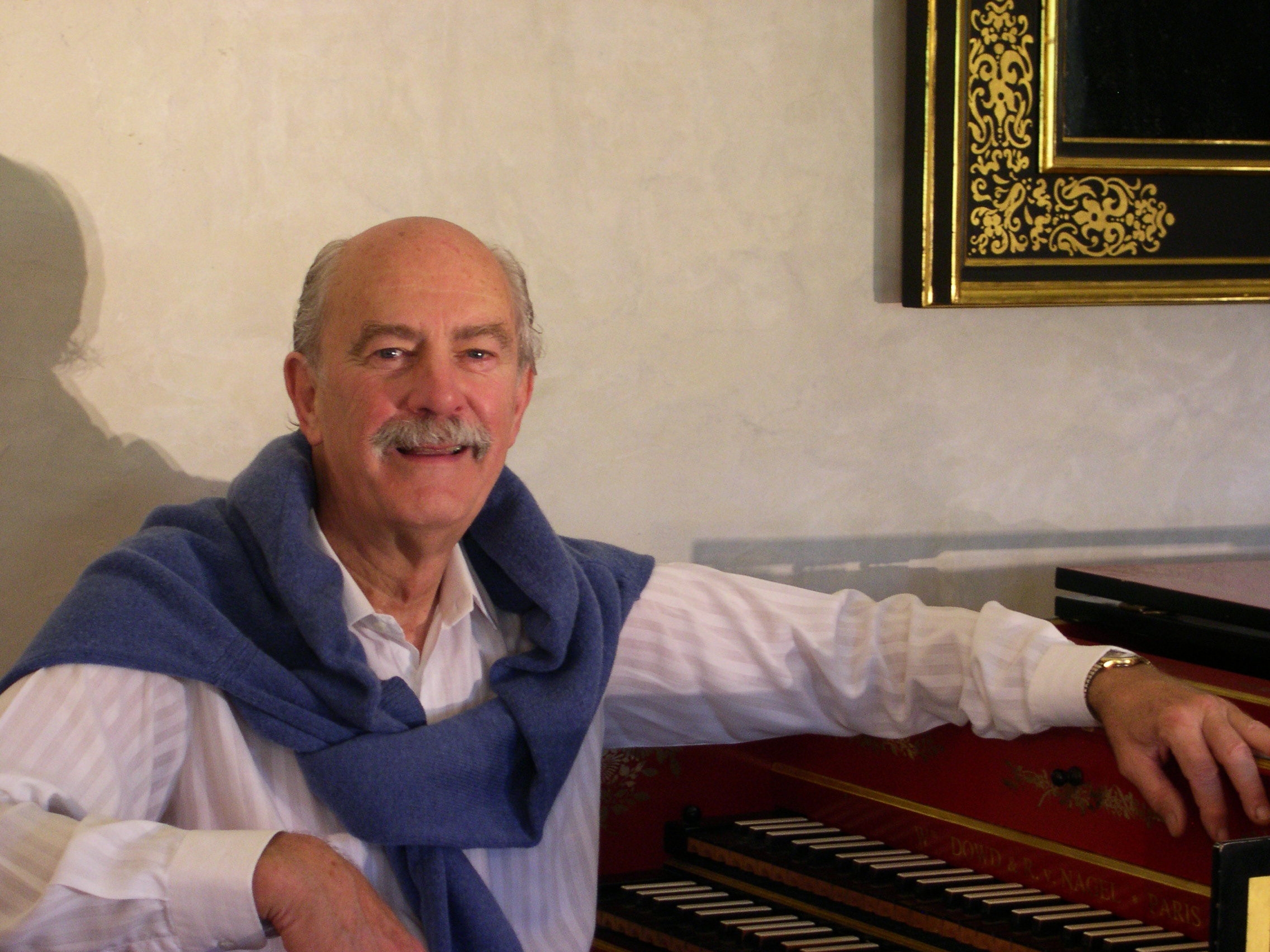|
Gerhard Croll
Gerhard Croll (25 May 1927 – 26 October 2019) was a German-Austrian musicologist. Life Born in Düsseldorf, Croll studied Kapellmeister at the Robert Schumann Hochschule and musicology with Rudolf Gerber at the University of Münster. He received his doctorate in 1954 with his thesis on ''Das Motettenwerk von Gaspar van Weerbeke''. After his habilitation in 1961, he became involved with the study of the operas of Agostino Steffani. From 1966 to 1993 he was professor and founding lecturer for musicology at the University of Salzburg. He was co-founder of the musicological institute (Salzburg Music History, Dance and Music Theatre and Bernhard-Paumgartner-Archive). Since 1955 he was a member of the New Mozart Edition. From 1960 to 1990 he was director of the Gluck Complete Edition. In 1986 he founded the International Gluck Society. He was a member of the Central Institute for Mozart research in Salzburg. He was also an honorary member of the Internationale Stiftung Moza ... [...More Info...] [...Related Items...] OR: [Wikipedia] [Google] [Baidu] |
Musicologist
Musicology (from Greek μουσική ''mousikē'' 'music' and -λογια ''-logia'', 'domain of study') is the scholarly analysis and research-based study of music. Musicology departments traditionally belong to the humanities, although some music research is scientific in focus (psychological, sociological, acoustical, neurological, computational). Some geographers and anthropologists have an interest in musicology so the social sciences also have an academic interest. A scholar who participates in musical research is a musicologist. Musicology traditionally is divided in three main branches: historical musicology, systematic musicology and ethnomusicology. Historical musicologists mostly study the history of the western classical music tradition, though the study of music history need not be limited to that. Ethnomusicologists draw from anthropology (particularly field research) to understand how and why people make music. Systematic musicology includes music theory, aesthe ... [...More Info...] [...Related Items...] OR: [Wikipedia] [Google] [Baidu] |
Emilio De' Cavalieri
Emilio de' Cavalieri (c. 155011 March 1602), or Emilio dei Cavalieri, the spellings "del" and "Cavaliere" are contemporary typographical errors, was an Italian composer, producer, organist, diplomat, choreographer and dancer at the end of the Renaissance era. His work, along with that of other composers active in Rome, Florence and Venice, was critical in defining the beginning of the musical Baroque era. A member of the Roman School of composers, he was an influential early composer of monody, and wrote what is usually considered to be the first oratorio. Life Cavalieri was born in Rome of an aristocratic and musical family. He was the son of Tommaso de' Cavalieri (c. 1509–1587), a close friend of Michelangelo. He probably received his early training there, and was working as an organist and music director in the period from 1578 to 1584. He spent much of his time in Rome as an organiser of Lenten oratorios. While in Rome he became associated with Cardinal Ferdinan ... [...More Info...] [...Related Items...] OR: [Wikipedia] [Google] [Baidu] |
21st-century German Musicologists
The 1st century was the century spanning AD 1 (Roman numerals, I) through AD 100 (Roman numerals, C) according to the Julian calendar. It is often written as the or to distinguish it from the 1st century BC (or BCE) which preceded it. The 1st century is considered part of the Classical era, epoch, or History by period, historical period. The 1st century also saw the Christianity in the 1st century, appearance of Christianity. During this period, Europe, North Africa and the Near East fell under increasing domination by the Roman Empire, which continued expanding, most notably conquering Britain under the emperor Claudius (AD 43). The reforms introduced by Augustus during his long reign stabilized the empire after the turmoil of the previous century's civil wars. Later in the century the Julio-Claudian dynasty, which had been founded by Augustus, came to an end with the suicide of Nero in AD 68. There followed the famous Year of Four Emperors, a brief period of civil war and inst ... [...More Info...] [...Related Items...] OR: [Wikipedia] [Google] [Baidu] |
Austrian Musicologists
Austrian may refer to: * Austrians, someone from Austria or of Austrian descent ** Someone who is considered an Austrian citizen, see Austrian nationality law * Austrian German dialect * Something associated with the country Austria, for example: ** Austria-Hungary ** Austrian Airlines (AUA) ** Austrian cuisine ** Austrian Empire ** Austrian monarchy ** Austrian German (language/dialects) ** Austrian literature ** Austrian nationality law ** Austrian Service Abroad ** Music of Austria ** Austrian School of Economics * Economists of the Austrian school of economic thought * The Austrian Attack variation of the Pirc Defence chess opening. See also * * * Austria (other) * Australian (other) * L'Autrichienne (other) is the feminine form of the French word , meaning "The Austrian". It may refer to: *A derogatory nickname for Queen Marie Antoinette of France *L'Autrichienne (film), ''L'Autrichienne'' (film), a 1990 French film on Marie Antoinette wit ... [...More Info...] [...Related Items...] OR: [Wikipedia] [Google] [Baidu] |
Hollitzer
Hollitzer is an Austrian publisher, founded in 2010 and located in Vienna. Programme The main emphasis of Hollitzer lays on theatre, music and cultural history. Starting with the edition of books for the partner institution Don Juan Archiv, the publishing house developed a concept mainly geared towards 17th and 18th century, also emphasizing on the rapports between the Ottoman Empire and the cultural history of Europe. Hollitzer presented several scientific publications in close cooperation with renowned universities and other scientific institutions; its books are in German, partially also in English and Italian. Literature In 2015, Hollitzer started to publish Belles-lettres. Its first publication in this field was dedicated to the Serbian-Sephardic novelist Gordana Kuić and her '' Scent of Rain in the Balkans'', thitherto not published in German language. This book was followed by the bright drama ''Don Juan turns sixty'' by well-known Austrian littérateur Robert Schind ... [...More Info...] [...Related Items...] OR: [Wikipedia] [Google] [Baidu] |
WorldCat
WorldCat is a union catalog that itemizes the collections of tens of thousands of institutions (mostly libraries), in many countries, that are current or past members of the OCLC global cooperative. It is operated by OCLC, Inc. Many of the OCLC member libraries collectively maintain WorldCat's database, the world's largest bibliographic database. The database includes other information sources in addition to member library collections. OCLC makes WorldCat itself available free to libraries, but the catalog is the foundation for other subscription OCLC services (such as resource sharing and collection management). WorldCat is used by librarians for cataloging and research and by the general public. , WorldCat contained over 540 million bibliographic records in 483 languages, representing over 3 billion physical and digital library assets, and the WorldCat persons dataset (Data mining, mined from WorldCat) included over 100 million people. History OCLC OCLC, Inc., doing bus ... [...More Info...] [...Related Items...] OR: [Wikipedia] [Google] [Baidu] |
Mozart Medal (Mozartgemeinde)
The Mozart Medal of the Mozartgemeinde Wien was a music award named after Wolfgang Amadeus Mozart. Recipients * Heinrich Damisch, 1952 *Wilhelm Furtwängler, 1952 * Heinrich von Kralik, 1952 *Joseph Marx, 1952 *Edwin Fischer, 1953 * Egon von Komorzynsky, 1953 *Irmgard Seefried, 1953 *Wiener Philharmoniker, 1953 *Audrey Christie, 1954 * John Christie, 1954 * Ernst Moravec, 1954 *Leopold Nowak, 1954 *Leopold Wlach, 1954 *Johann Nepomuk David, 1955 * Anton Dermota, 1955 * Hans Pemmer, 1955 *Erich Schenk, 1955 * Amis de Mozart Paris, 1956 *Boston Symphony Orchestra, 1956 *Comune di Milano, 1956 *Deutsche Grammophon Gesellschaft, 1956 *Karl Böhm, 1957 * Maria Gerhart, 1957 *Erich Kunz, 1957 *Erich Müller-Asow, 1957 *Willy Boskovsky, 1958 *Franziska Martienssen-Lohmann, 1958 *Julius Patzak, 1958 * Wiener Oktett, 1958 *Wiener Symphoniker, 1958 * Hans Duhan, 1960 *Bernhard Paumgartner, 1960 *Erik Werba, 1960 *Josef Witt, 1960 *Wilhelm Backhaus, 1961 *Ferdinand Grossmann, 1961 * Wise He ... [...More Info...] [...Related Items...] OR: [Wikipedia] [Google] [Baidu] |
Salzburg
Salzburg (, ; literally "Salt-Castle"; bar, Soizbuag, label=Bavarian language, Austro-Bavarian) is the List of cities and towns in Austria, fourth-largest city in Austria. In 2020, it had a population of 156,872. The town is on the site of the Roman settlement of ''Iuvavum''. Salzburg was founded as an episcopal see in 696 and became a Prince-Archbishopric of Salzburg, seat of the archbishop in 798. Its main sources of income were salt extraction, trade, and gold mining. The fortress of Hohensalzburg Fortress, Hohensalzburg, one of the largest medieval fortresses in Europe, dates from the 11th century. In the 17th century, Salzburg became a center of the Counter-Reformation, with monasteries and numerous Baroque churches built. Historic Centre of the City of Salzburg, Salzburg's historic center (German language, German: ''Altstadt'') is renowned for its Baroque architecture and is one of the best-preserved city centers north of the Alps. The historic center was enlisted as a UN ... [...More Info...] [...Related Items...] OR: [Wikipedia] [Google] [Baidu] |
Nikolaus Harnoncourt
Johann Nikolaus Harnoncourt or historically Johann Nikolaus Graf de la Fontaine und d'Harnoncourt-Unverzagt; () (6 December 1929 – 5 March 2016) was an Austrian conductor, particularly known for his historically informed performances of music from the Classical era and earlier. Starting out as a classical cellist, he founded his own period instrument ensemble, Concentus Musicus Wien, in 1953, and became a pioneer of the Early Music movement. Around 1970, Harnoncourt began conducting opera and concert performances, soon leading international symphony orchestras, and appearing at leading concert halls, operatic venues and festivals. His repertoire then widened to include composers of the 19th and 20th centuries. In 2001 and 2003, he conducted the Vienna New Year's Concert. Harnoncourt was also the author of several books, mostly on subjects of performance history and musical aesthetics. Early life Johann Nikolaus Harnoncourt was born as an Austrian citizen in Berlin, German ... [...More Info...] [...Related Items...] OR: [Wikipedia] [Google] [Baidu] |
Diego Fasolis
Diego Fasolis (born 19 April 1958) is a Swiss classical organist and conductor, the leader of the ensemble I Barocchisti. He has conducted operas in historically informed performance at major European opera houses and festivals, and has made award-winning recordings. Career Born in Lugano, Fasolis studied in Zurich, at both the Zurich Conservatory and the Musikhochschule, organ with Erich Vollenwyder, piano with Jürg Wintschger, voice with Carol Smith, and conducting with Klaus Knall, achieving all four diplomas with distinction. He further studied organ and organ improvisation with Gaston Litaize in Paris, and historically informed performance (HIP) with Michael Radulescu. In 1985 and 1986, he performed the complete organ works by Johann Sebastian Bach, Felix Mendelssohn and Franz Liszt. He received several international awards such as the Stresa first prize, the first prize and scholarship of the Migros-Göhner Foundation, the Hegar Prize, the Traetta Prize 2020, and he was ... [...More Info...] [...Related Items...] OR: [Wikipedia] [Google] [Baidu] |
Alan Curtis (harpsichordist)
Alan Curtis (November 17, 1934July 15, 2015) was an American harpsichordist, musicologist, and conductor of baroque opera. Born in Mason, Michigan, Curtis graduated from studies at the University of Illinois, and received his PhD in 1960 with a dissertation on the keyboard music of Sweelinck. He then relocated to Amsterdam to work with Gustav Leonhardt, with whom he subsequently recorded a number of Bach's concerti for harpsichord. In the 1960s and 1970s, he made a number of recordings of solo harpsichord music including albums dedicated to the keyboard music of Rameau and the works of Johann Sebastian Bach, such as his recording of the ''Goldberg Variations'' made on a 1728 Christian Zell harpsichord. Following an academic career divided between UC Berkeley and Europe, Curtis devoted his time to performing dramatic music from Monteverdi to Mozart. As a student in the 1950s, he was the first modern harpsichordist to examine problems surrounding Louis Couperin's unmeasured pr ... [...More Info...] [...Related Items...] OR: [Wikipedia] [Google] [Baidu] |




